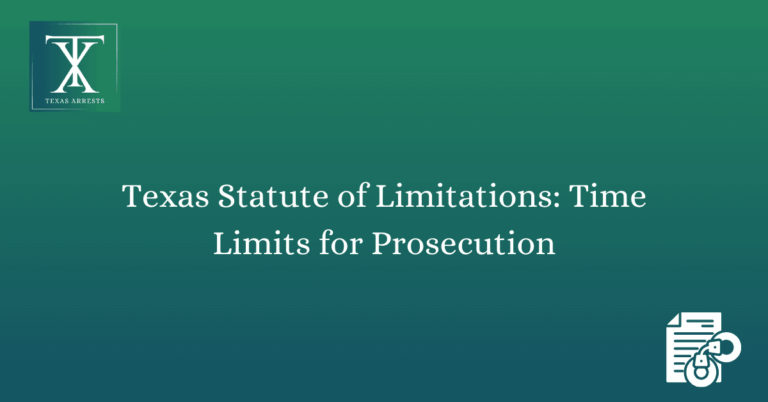Appeals Process in Texas: Your Legal Options
The appeals process in Texas can provide valuable insights into your legal options. Whether you are facing a challenging legal situation or seeking guidance on navigating the legal system, understanding your rights and options is crucial. From filing appeals to presenting your case effectively, having a clear understanding of the appeals process in Texas can empower you to make informed decisions.
Knowing your legal options in Texas can help you navigate complex legal procedures with confidence. By exploring the appeals process and understanding the steps involved, you can effectively advocate for your rights and seek the justice you deserve. Whether you are considering appealing a court decision or seeking legal advice, being informed about your legal options is essential in protecting your interests.
Navigating Texas Appeals: Your Legal Lifeline
The appeals process in Texas is a crucial aspect of the legal system that allows individuals to challenge court decisions they believe are incorrect or unjust. Understanding your legal options in this process is essential to protect your rights and seek justice.
Importance of Knowing Your Legal Options
Knowing your legal options when it comes to the appeals process can make a significant difference in the outcome of your case. It allows you to explore different avenues for challenging a court decision and ensures that you are aware of all the steps involved in filing an appeal.
Steps Involved in Filing Appeals
When filing an appeal in Texas, there are specific procedures that must be followed. This typically involves submitting a notice of appeal, providing the necessary documentation, and presenting your arguments to the appellate court. Understanding these steps is crucial to navigating the appeals process effectively.
Navigating Complex Legal Procedures with Confidence
Appealing court decisions can be a daunting task, especially when faced with complex legal procedures. However, with the right knowledge and guidance, you can navigate these procedures with confidence and advocate for your rights effectively.
Advocating for Your Rights Effectively
Advocating for your rights during the appeals process requires a clear understanding of the legal arguments and strategies that can strengthen your case. By presenting your arguments effectively and persuasively, you can increase your chances of a favorable outcome.
Seeking Justice through Legal Advice
Seeking legal advice from experienced professionals can provide you with valuable insights and guidance throughout the appeals process. They can help you understand the complexities of the legal system, navigate procedural requirements, and make informed decisions to seek justice.
Empowering Yourself with Informed Decisions
Empowering yourself with informed decisions is key to protecting your interests and securing a fair outcome in the appeals process. By considering important factors and seeking legal knowledge, you can strengthen your case and increase your chances of success.
Considerations for Appealing Court Decisions
When considering appealing court decisions, it is essential to weigh the strengths and weaknesses of your case, assess the potential outcomes, and determine the best course of action. Making informed decisions based on these considerations can help you effectively navigate the appeals process.
Protecting Your Interests with Legal Knowledge
Protecting your interests during the appeals process requires a solid understanding of legal concepts, procedures, and strategies. By equipping yourself with this knowledge, you can effectively communicate your arguments, anticipate challenges, and safeguard your rights in the legal system.
Frequently Asked Questions
Our Frequently Asked Questions section aims to provide comprehensive information about the Appeals Process in Texas and your legal options. Whether you are facing a legal issue or seeking clarification, our FAQs are here to guide you through the process.
What is the appeals process in Texas?
The appeals process in Texas allows individuals to challenge a court decision they believe is unjust. It involves presenting legal arguments and evidence to a higher court for review.
How long does the appeals process take in Texas?
The length of the appeals process in Texas can vary depending on the complexity of the case and the court’s schedule. It typically takes several months to a year to resolve an appeal.
What are the different types of appeals in Texas?
There are two main types of appeals in Texas: civil appeals and criminal appeals. Civil appeals involve disputes between individuals or organizations, while criminal appeals deal with convictions and sentencing.
Can I represent myself in an appeal in Texas?
While you have the right to represent yourself in an appeal in Texas, it is highly recommended to seek legal representation. An experienced attorney can navigate the complex legal process and increase your chances of a successful appeal.
What are the grounds for appeal in Texas?
Common grounds for appeal in Texas include errors in the application of law, misconduct by the judge or jury, newly discovered evidence, and ineffective assistance of counsel. It is essential to identify valid grounds to have a strong case for appeal.
How can I file an appeal in Texas?
To file an appeal in Texas, you must submit a notice of appeal to the appropriate court within a specified timeframe. It is crucial to follow the procedural rules and deadlines to ensure your appeal is considered.







